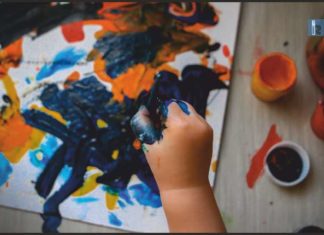Which way of learning is easier – Theoretical or Practical? The obvious answer would be practical. Learning something by doing it is much easier compared to just reading or hearing it. When one has hands-on experience of a topic, they tend to understand and remember the topic better. This type of learning is known as Experiential Learning. The best example – everyone has learned to walk and talk, not by being told or shown, but by practicing on their own.
Experiential learning is a model used in education, training, development, etc. It is a participant focused approach to learning which engages all age groups and backgrounds of learners. It is a continuous process of learning. The experiential learning cycle has four stages:
- Concrete Experience: This describes the hands-on experiences that people learn from. This is the time when people can experiment new things, face the problems and find solutions to those problems. This can be said as the ‘step-out-of-comfort-zone’ stage. These experiences could be personal or professional ones. Experiences help people learn from their failures and successes.
- Reflective Observation: The reflective observation stage of the experiential learning cycle is about reflecting to learn from experiences. This is the stage where one needs to analyze their experience to see what went right and what went wrong? It is this time when one can think of the different ways that could have been adopted to complete the particular task.
- Abstract Conceptualization: Once the characteristics of the experience are identified, things that can be done differently next time. At this stage people should plan and brainstorm ways to achieve success in the future. It is the time for making strategies to climb the ladder of success.
- Active Experimentation: This is the stage where the plans are put to action. The active experimentation is the phase where ideas are experimented. If something new is not tried, then the result will be unknown so this phase is very important. It is vital to execute ideas to see the difference it creates in the world.
Why is Experiential Learning Important?
Over the years, learning has evolved and now experiential learning seems to be the future of learning. It is said as the future of learning due its various benefits to people. The importance of experiential learning can be explained as:
- Grasp Concepts Better: It is not necessary that each person understands the concepts similarly. If one has higher understanding power, the other has a lower power. Experiential learning helps people to see what the concept actually means. When people actually perform the particular activity they understand it better. They get to apply the ideas and concepts into real life situations where they too have an active role to play. This helps people grasp things better.
- Bridge between Theory and Practice: Learning by doing bridges the gap between theory and practice. Theory only explains how something can be done and practice only lets one perform it in a certain environment. However, experiential learning allows one to carry out the activity in a real life situation and analyze its results.
- Mistakes become Valuable Experiences: Before entering the real world, students get a chance to experiment the various approaches towards one thing. They get to eliminate the methods that do not work and improve the ones that work out. In this case, the students are allowed to make mistakes and learn from. This makes the students to be fearless of their mistakes.
- Opportunity to be Creative: Each day each person faces various kinds of problems. Experiential learning teaches creative problem solving. With real life content, students learn the various solutions to one problem. This encourages students to look for unique solutions to daily problems.
Just the term – Experiential Learning – says a lot. The aim of ‘Experiential Learning’ is to create a real life experience for students to learn from where there would be no or less consequences. The learner, has a chance to recall what they learnt easily in this method than memorizing it. It gives them the opportunity to explore the creative and innovative side of theirs. This not only helps build confidence among the students but also gives them the strength to fight the challenges ahead of them.
– Shreevarshita Gupta


